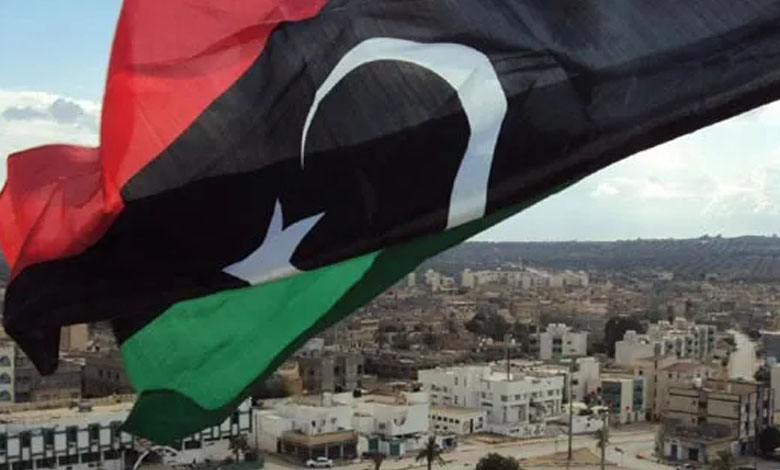UN Efforts from Eastern Libya to Pave the Way for Long-Awaited Elections

Abdoulaye Bathily emphasized during a meeting with Khalifa Haftar and foreign ambassadors the utmost importance of security to enable comprehensive elections and establish legitimate institutions, paving the way for sustainable stability in Libya
The UN envoy to Libya, Abdoulaye Bathily, discussed with the commander of the Libyan National Army, Khalifa Haftar, and foreign ambassadors in the country ways to secure the upcoming elections in preparation for sustainable stability in the country. Libyan hopes are rising for an end to the political crisis, especially in light of recent developments, including the announcement of a roadmap for the electoral process. Bathily met with Haftar at his office in Benghazi (Eastern Libya) on Monday night, with the presence of ambassadors from the countries of the Security Working Group: Turkey, Italy, Egypt, France, Germany, Tunisia, and the United Kingdom.
Bathily stated in a statement posted on Twitter on Tuesday, “Last night, a constructive meeting was held in Benghazi with the ambassadors of Italy, Egypt, France, Germany, Tunisia, Turkey, and the United Kingdom,” adding, “We discussed preparations for the Security Working Group meeting scheduled for today, Tuesday.”
He further stated, “During the meeting, I emphasized the utmost importance of security to enable comprehensive elections and establish legitimate institutions, paving the way for sustainable stability in Libya.”
In response, the Eastern Libyan forces said in a statement early on Tuesday that the meeting discussed “the importance of holding presidential and parliamentary elections and preparing suitable conditions for their success.”
The statement indicated that the meeting is part of the Security Working Group meetings arising from the Berlin Conference, which will hold a meeting in Benghazi on Tuesday, attended by the Libyan Joint Military Commission “5+5.”
The Security Working Group was created as a result of the international Berlin Conference on Libya, held on January 19, 2020, and includes, in addition to the United Nations mission, senior representatives from the African Union, Turkey, the United States, France, Italy, Britain, and Egypt.
The group meets regularly to assess the security situation in Libya, with its last meeting held in Tripoli in May last year, with the presence of the Libyan “5+5” military committee.
The “5+5” committee consists of five members from the military establishment in Western Libya and five from Haftar’s forces. They have been engaged in dialogue for over two years to unify the army under the auspices of the United Nations mission, as part of the ceasefire agreement signed in Geneva in October 2020.
Parallel to the military dialogue, the United Nations is leading efforts through its mission for a political settlement in Libya, aiming to hold elections by the end of this year 2023 and resolve the power struggle.
In a related context, Libyan House of Representatives President, Aguila Saleh, discussed with Bathily on Monday the issue of elections, the roadmap for the next phase, and the formation of a unified government.
A statement from the Libyan House of Representatives indicated that the meeting covered developments in the political situation in Libya, the roadmap for the next phase, the outputs of the Electoral Laws Preparatory Committee (6+6), and the formation of a unified government across the country.”
On July 11, the Supreme Council of State in Libya announced the adoption of a roadmap that calls for holding elections after 240 days of approving the electoral laws. On the same day, the House of Representatives postponed the discussion of the same roadmap and expressing its position on it to a forthcoming session to be held this week.
On July 12, Bathily called for a meeting with the President of the Supreme Council of State to urge the need for consensus on the roadmap and not to postpone the elections, as stated in a tweet on Twitter.
The statement from the Libyan House of Representatives confirmed Saleh’s affirmation during Monday’s meeting of “the progress of the House of Representatives in developing a new roadmap for the next phase and considering the outputs of the (6+6) Committee to reach a consensus on the electoral laws.”
The statement added, “The aim is to hold presidential and parliamentary elections as soon as possible.”
The “6+6” committee is stipulated in the 13th amendment to the Constitutional Declaration (temporary constitution established after the overthrow of Muammar Gaddafi’s regime in 2011) and consists of representatives from both the House of Representatives and the State Council.
According to the agreement between the two councils, the committee was tasked with developing consensual electoral laws that would lead to elections to resolve the power struggle between a government appointed by the House of Representatives in early 2022 and the Government of National Unity led by Abdul Hamid al-Dabaiba, who refuses to hand over power except to a newly elected parliament.
On June 6, the committee announced that its members signed the electoral laws related to the elections of the President, the House of Representatives, and the Senate of the future.












